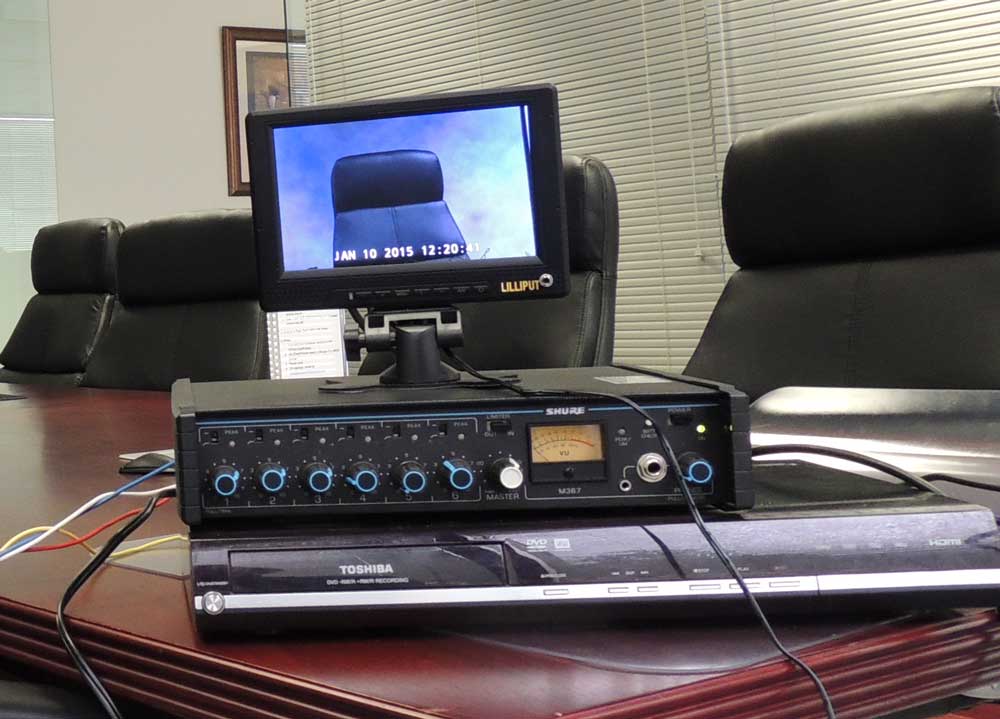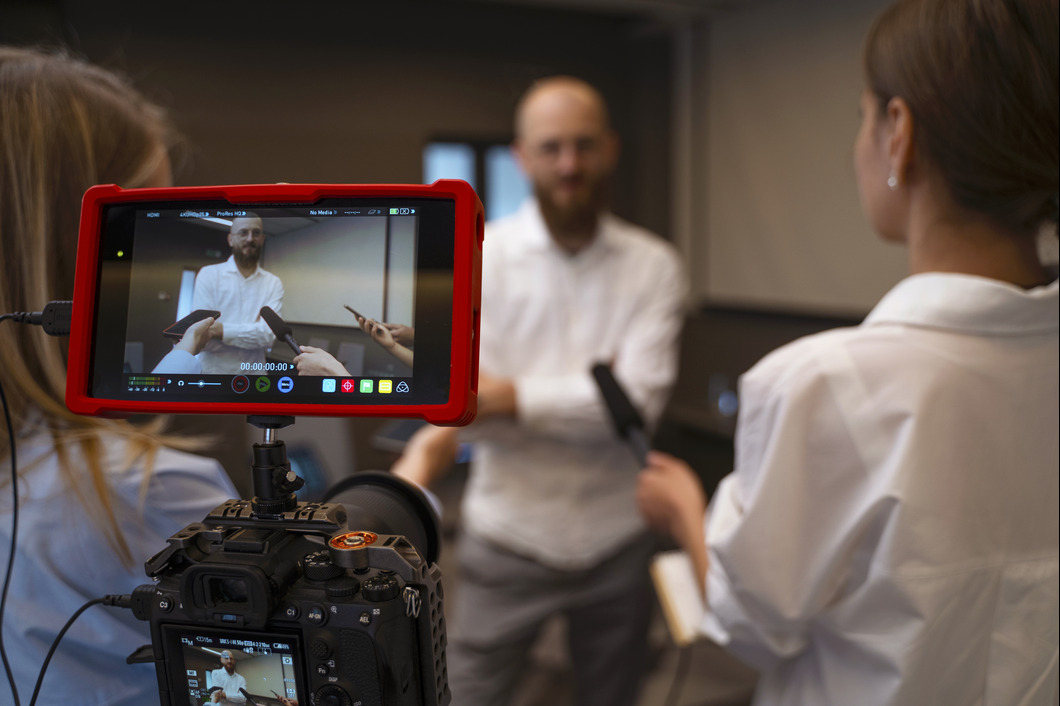The Value of Legal Video Clip Depositions in Modern Legal Services: What You Ought to Know
Legal video depositions have become important in today's legal landscape. They supply a multidimensional sight of witness statements that typical records just can not match. By catching both non-verbal and verbal interaction, these depositions boost the general understanding of a witness's credibility. The effectiveness of video clip depositions hinges on numerous aspects, including conformity with legal standards and finest practices. Discovering these aspects reveals their real importance in modern lawful solutions
What Are Legal Video Depositions?
Lawful video clip depositions work as an essential device in the lawsuits procedure. They involve taping witness testaments in a video clip format, recording both non-verbal and verbal communication. This technique permits lawyers to record the disposition, expressions, and responses of witnesses, offering a richer context for the statement. Normally performed in a regulated setting, these depositions are led by attorneys that ask inquiries while a court reporter records the discussion. The resulting video can be important for test preparation, as it makes it possible for lawyers to evaluate the trustworthiness of witnesses and improve their methods. Furthermore, legal video depositions can be utilized in various lawful contexts, varying from civil disagreements to criminal instances. The acoustic and aesthetic aspects of video depositions improve the presentation of evidence, making it a necessary element in the contemporary legal landscape. Overall, they add substantially to the effectiveness and efficiency of legal proceedings.

Benefits of Video Depositions Over Standard Techniques
Video clip depositions provide countless advantages compared to typical methods of taking witness testaments. One substantial benefit is the capability to capture both aesthetic and audio elements, supplying an extra extensive document of the witness's declarations. This double layout enhances clearness and enables attorneys to reference certain nuances during trial prep work. In addition, video clip depositions help with remote involvement, making it less complicated for witnesses who might be unavailable for in-person appearances because of geographical restrictions or wellness issues.Moreover, video clip depositions can expedite the general deposition procedure, lowering the moment and prices connected with travel and logistics. They also enhance availability, as taped depositions can be conveniently shared amongst lawful groups and referenced at any moment. This ease adds to far better instance monitoring and prep work. On the whole, video clip depositions stand for a contemporary, effective technique to gathering witness statements, lining up with the advancing demands of the lawful occupation.
The Role of Body Language and Tone in Testimonies

In legal video depositions, body movement and tone play important roles in sharing a witness's reputation and dependability. Nonverbal cues can give understandings into a witness's emotional state, affecting how their testament is perceived. Recognizing the impact of these components is crucial for attorneys and jurors alike when examining the integrity of a statement.
Nonverbal Interaction Insights
While verbal communication is frequently stressed in legal testaments, nonverbal cues such as body movement and tone play an essential function in conveying credibility and emotion. Viewers of depositions may note that a witness's stance, gestures, and faces can substantially influence perceptions of reliability. Regular eye get in touch with might signify self-confidence, while staying clear of look could suggest deceit or pain. In a similar way, the intonation-- its speed, pitch, and quantity-- can give feelings of sincerity or unpredictability. Lawyers have to be in harmony with these nonverbal signals, as they typically supply essential context that enhances talked words. Understanding these subtleties can improve the efficiency of depositions and influence the result of legal proceedings.
Psychological Tone Impact
The psychological tone communicated during legal testimonies significantly impacts how a witness is regarded. Body movement, singing inflections, and faces play crucial functions in shaping the story of a statement. A witness displaying confidence via steady eye contact and a tranquil tone can infuse a sense of reliability and involvement. On the other hand, indications of anxiety, such as fidgeting or an unstable voice, may bring about skepticism concerning their account. The subtleties of psychological expression can influence the interpretation of truths, making it necessary for lawyers to identify these cues. In video clip depositions, the visual and acoustic components incorporate, highlighting the significance of psychological tone in conveying sincerity and reliability within the legal procedure.
Reputation and Dependability
A vital aspect in establishing integrity and trustworthiness throughout testaments lies in the witness's body language and intonation. Onlookers usually depend on non-verbal signs-- such as eye get in touch with, stance, and motions-- to examine a witness's genuineness. A witness who maintains eye get in touch with and shows open body language might be regarded as even more trustworthy and straightforward than one who avoids eye contact or shows up shut off. Additionally, tone of voice plays an important function; a consistent, tranquil tone can enhance the credibility of the testimony, while fluctuations in pitch or quantity may raise doubts. Ultimately, the mix of body movement and vocal tone substantially influences exactly how a witness's statements are received and analyzed in a lawful context.
Ideal Practices for Carrying Out Video Depositions
Conducting video clip depositions calls for cautious planning and execution to guarantee a effective and clear discussion of testament. First, it is necessary to choose a silent, well-lit place to lessen diversions and protected optimal video clip high quality. The equipment needs to be checked ahead of time, consisting of cams, microphones, and illumination, to prevent technological problems throughout the deposition.Next, celebrations entailed need to review the style and treatments in advance, making certain that everybody recognizes their functions. The deponent needs to be briefed on the procedure, including just how to respond clearly and concisely.Additionally, keeping an expert disposition throughout the session is crucial. This includes abstaining from talking over each other and validating that all questions are guided suitably. It is critical to tape-record the deposition in a style that permits for very easy playback and review, protecting the stability of the testament for future usage.
Lawful Factors To Consider and Compliance Issues
How do legal factors to consider and conformity issues impact the effectiveness of video depositions? Lawyers need to browse a complicated landscape of guidelines, making certain that video clip depositions follow administrative regulations and criteria. Conformity with regulations worrying personal privacy, consent, and recording methods is important. Obtaining specific consent from all celebrations included is required to avoid lawful repercussions.Additionally, the admissibility of video clip evidence in court can pivot on conformity with procedural requirements. Ensuring that the tools utilized meets technological requirements is also vital, as inadequate high quality can undermine the deposition's reliability.Moreover, lawyers should know any kind of particular state laws that regulate video depositions, as these can differ significantly. Failing to attend to these considerations can not just jeopardize the honesty of the deposition but additionally influence the overall situation strategy, inevitably affecting the customer's legal results.
How Video Clip Depositions Impact Court Perception
While video depositions can function as powerful devices in lawful proceedings, their influence on court perception is considerable. The acoustic and aesthetic elements of video recordings give jurors with a more detailed understanding of witness behavior, reliability, and psychological feedbacks. This multimedia method can improve the jurors' capacity to assess the dependability of testimony contrasted to typical text-based transcripts.Moreover, video depositions allow jurors to observe body language, tone of voice, and face expressions, every one of which can influence their interpretation of the witness's statements. The existence of a witness on display can humanize them, cultivating compassion and connection, which may persuade jurors' viewpoints. Conversely, a witness who appears evasive our website or unreliable on video clip might bring about adverse assumptions that affect a court's choice. Inevitably, the vibrant nature of video clip depositions plays an essential duty in forming just how jurors interpret proof and reach their judgments.
The Future of Video Clip Depositions in Legal Technique
As advancements in technology remain to improve the lawful landscape, the future of video clip depositions is positioned for considerable development. Advancements such as man-made intelligence, virtual reality, and boosted video clip conferencing tools are anticipated to simplify the deposition procedure and enhance ease of access. Lawyers might use AI-driven analytics to evaluate witness credibility and case toughness a lot more effectively.Moreover, the combination of virtual fact might allow juries to experience immersive simulations of depositions, giving much deeper context and understanding. Additionally, the fad toward remote depositions is likely to continue, providing better versatility for attorneys and customers alike.As remote job ends up being increasingly stabilized, video depositions will likely end up being conventional technique, decreasing expenses and time restraints connected with standard techniques. In general, these technical improvements guarantee to boost the effectiveness, performance, and ease of access of video clip depositions in legal technique, eventually changing exactly how attorneys plan for trial.
Often Asked Inquiries
How Much Do Lawful Video Clip Depositions Generally Cost?

Can Video Clip Depositions Be Utilized in Any Type Of Kind Of Case?
Video clip depositions can be made use of in different sorts of cases, including civil, criminal, and household law. Their flexibility permits lawyers to present witness testimonies properly, adjusting to the particular requirements of different lawful circumstances.
What Equipment Is Required for a Video Clip Deposition?
To conduct a video clip deposition, crucial devices includes a high-grade electronic camera, microphone, illumination, and a reputable recording device. In addition, a computer with editing and enhancing software application may be needed for post-production and formatting the final video clip.
For how long Does a Common Video Clip Deposition Last?
A common video clip deposition lasts between 2 to four hours, depending upon the intricacy of the situation and the number of inquiries positioned. Extensive sessions may happen, yet breaks are typically included for participant comfort.

Are Video Clip Depositions Admissible in Court?
Video clip depositions are generally admissible in court, offered they comply with legal standards and guidelines of evidence. Their use improves clearness and preserves witness testimony, aiding in the judicial process during trials and hearings. Lawful video clip depositions have actually ended up being necessary in today's lawful landscape. Furthermore, lawful video clip depositions can be used in different legal contexts, ranging from civil disputes to criminal situations. Furthermore, video depositions help with remote participation, making it easier for witnesses that might be not available for in-person looks due to geographical constraints or wellness issues.Moreover, video over at this website clip depositions can expedite the overall deposition procedure, decreasing the time and expenses associated with travel and logistics. Guaranteeing that the equipment made use of satisfies technical criteria is likewise essential, as poor top quality can weaken the deposition's reliability.Moreover, attorneys must be mindful of any type of specific state regulations that govern video clip depositions, as these can vary greatly. In addition, the trend towards remote depositions is likely to linger, providing better versatility for attorneys and customers alike.As remote job ends up being significantly normalized, video clip depositions will likely become click site conventional practice, minimizing costs and time restrictions linked with conventional approaches.